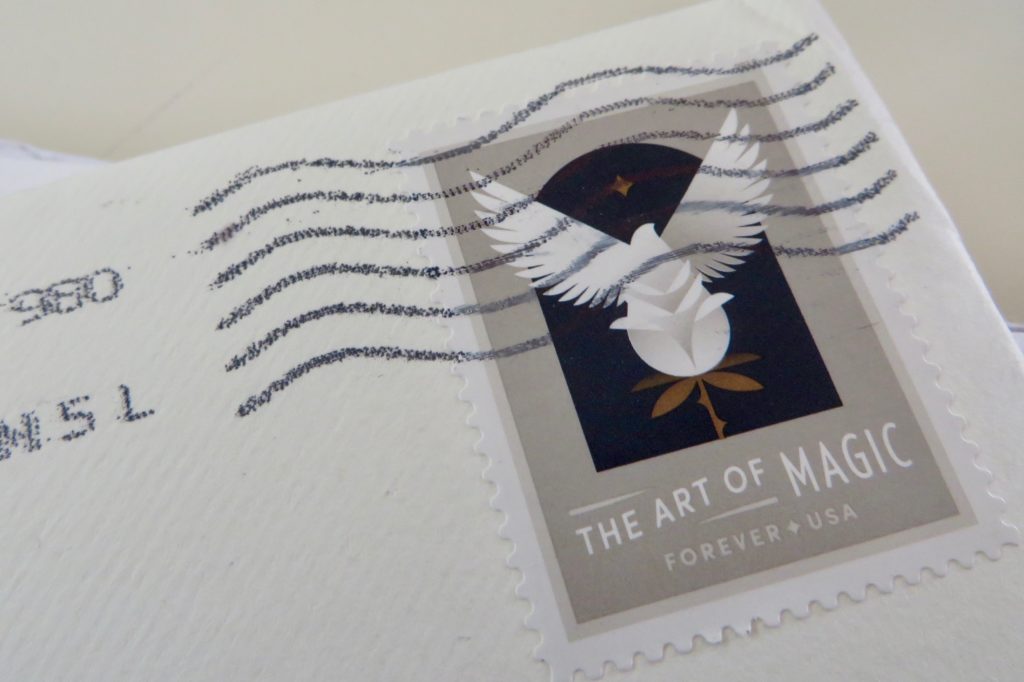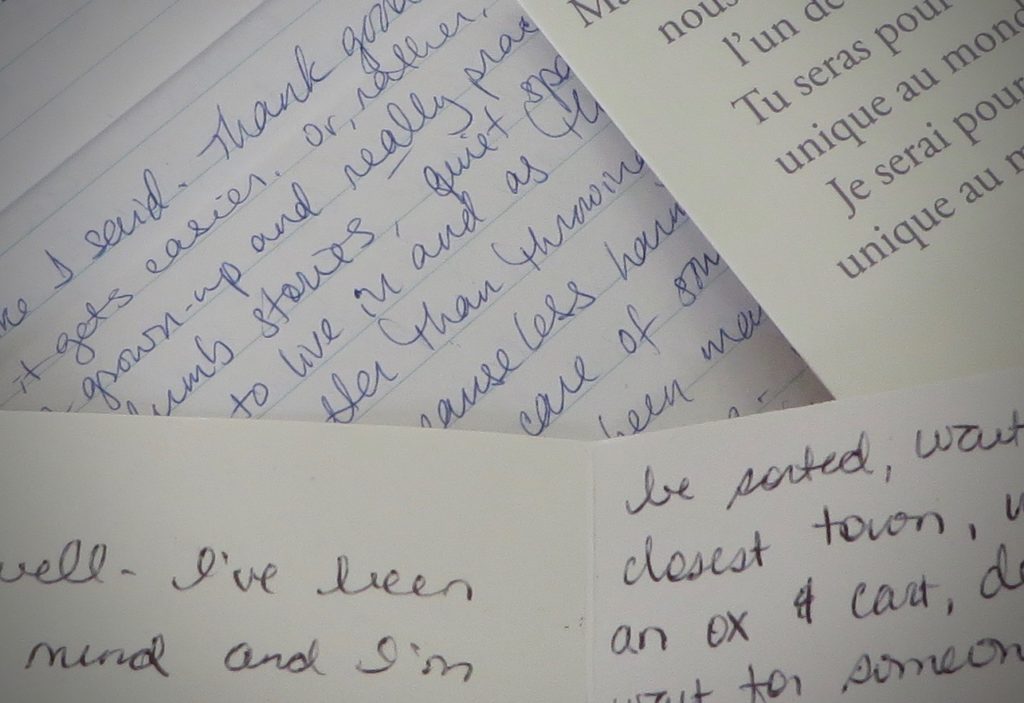When he was 23, Jerome Motto led an Army truck regiment in World War II. He drove through mile after mile of devastation, surrounded by enemy fire and praying that he and his 39 men would be safe. His prayers were answered with the occasional cargo drop bringing food, supplies, and the one thing he would later credit for keeping him alive—letters.
There was a day last week when I looked at the papers strewn across my desk and thought, “What a good day.” I had just opened and read three letters: one each from Illinois, Wisconsin and northern California. It isn’t such a strange thing for me to receive or send letters. One or the other happens several times a week. Hearing recently that the Forever stamp would go up by five cents at the end of January, I bought three sheets on Monday. These days, stamps feel like the only investment that will pay off.
Jerome Motto got letters from his family, of course. They wrote about their worry and hardships, and wished he would write back more often. He felt sad and guilty that he couldn’t help them. Surprisingly, the letters he most looked forward to were from a woman he’d met but barely remembered. She wrote about commonplace things, he said, like weather and songs on the radio, and she kept writing whether he did or not. He felt a connection. She was interested; she cared. And although he wondered what might come of their friendship, nothing did. He survived the war, living another 60 years without ever seeing her again.
Two years ago I invited people to write to me, promising that I would respond. The world seemed broken. We were disconnected, alienated and at war. At first, a lot of letters came. And then, as you’d expect, enthusiasm waned. I know: it’s hard to keep correspondence going. I never meant to imply that people could only communicate with me by letter, but there is something intimate about putting words on paper, folding and creasing, then closing, addressing, stamping and posting the envelope. It is personal. It is a person.
I have a thing about letters.
After the war, Motto became a psychiatrist. He happened to read an authoritative paper suggesting that the most disturbed patients could be helped by a feeling of connection to another person. So he came up with a research project. He and his staff would interview patients being discharged from a psychiatric hospital—3,000 in all—and half of them would be sent a series of letters—24 letters over five years—asking how they were doing. The letters were simple and short, intended to create a sense of kinship as if sent by a friend.
The results were dramatic. The suicide rate among the “contact group,” those receiving letters, was half that of the control group to which no letters were sent. The lower incidence continued even after the letters had stopped. His was the first experiment to ever show a decline in suicide rates. But still, not many people ever found out about the work.
Around the time the bounty of letters landed on my desk, I read about Jerome Motto and the legacy of his letters in this in-depth article. After you read it in full, you might reflect on yourself and the people in your life. Should you ever feel alone and in despair, perhaps a caring letter will come. Or perhaps you will send one. Either way works.





This is so beautiful Maezen. Thank you for the reminder.
Comment by Kirsten — November 25, 2018 @ 7:40 am
Thank you, friend. Your letters mean more than you could know. I have a thing about letters too. So much life-saving going on all around ♡
Comment by Bonnie Rae — November 25, 2018 @ 8:42 am
How perfect! After my mom passed in January, so many people became my family…friends and in laws offered up the kindest words that kept me afloat during those rough months. I planned on writing a note to each person this Christmas but I may need to keep going after that!!! Love you Maezen!!!
Comment by Eva — November 26, 2018 @ 2:46 pm
Thank you. As always.
Comment by Sarah — November 26, 2018 @ 4:48 pm
Yes, to write a letter takes care. No rushing, sit down and take your time to compose the words and the sentences with meaning and with love. I also like to send postcards. Is that old-fashioned? Thankyou
Comment by Ken Winter-Briggs — November 29, 2018 @ 8:37 am